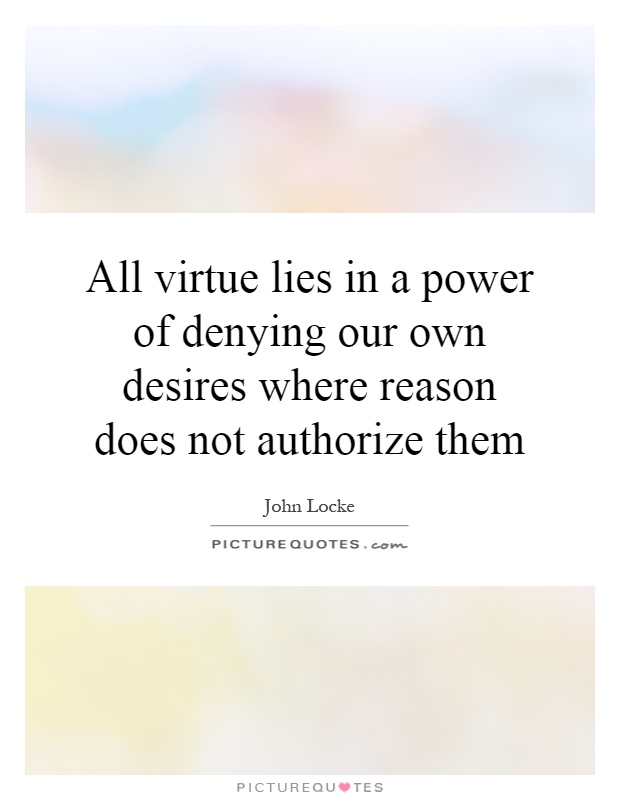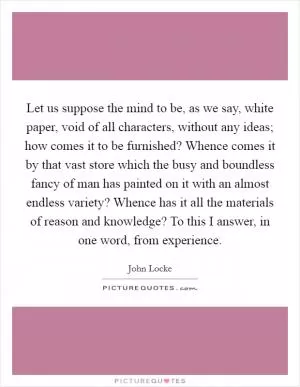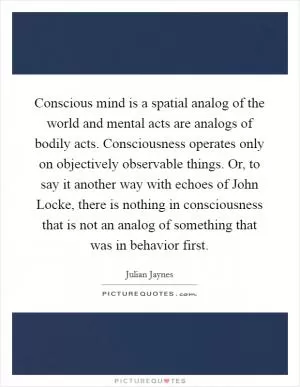All virtue lies in a power of denying our own desires where reason does not authorize them

All virtue lies in a power of denying our own desires where reason does not authorize them
John Locke, a prominent figure in the Enlightenment era, believed in the importance of reason and rationality in guiding human behavior. In his work, Locke emphasized the need for individuals to exercise self-control and restraint in order to cultivate virtue. He argued that true virtue lies in the ability to deny our own desires when reason does not justify them.Locke believed that human beings are born as blank slates, or tabula rasa, and that our experiences and interactions with the world shape our beliefs and values. He posited that reason is the key to understanding the world and making moral decisions. According to Locke, reason is the faculty that allows us to discern between right and wrong, and to act in accordance with moral principles.
In the context of denying our own desires where reason does not authorize them, Locke was advocating for the importance of self-discipline and moral integrity. He believed that true virtue is not simply following one's whims and desires, but rather making decisions based on rational thought and ethical considerations. By exercising self-control and denying our own desires when reason does not justify them, we are able to act in accordance with our moral principles and values.
Locke's emphasis on reason and virtue has had a lasting impact on Western philosophy and ethics. His ideas have influenced thinkers such as Immanuel Kant and John Stuart Mill, who also emphasized the importance of reason and moral principles in guiding human behavior. Locke's belief in the power of denying our own desires where reason does not authorize them serves as a reminder of the importance of self-discipline and moral integrity in leading a virtuous life.












 Friendship Quotes
Friendship Quotes Love Quotes
Love Quotes Life Quotes
Life Quotes Funny Quotes
Funny Quotes Motivational Quotes
Motivational Quotes Inspirational Quotes
Inspirational Quotes